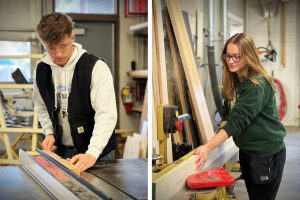As society continues to evolve and change, so too does the landscape of higher education. In episode 104 of the podcast series, the hosts delve into the concept of higher education in a “post-generational society” and explore the implications of this shift on academia.
One of the key points discussed in this episode is the idea that traditional generational boundaries are becoming increasingly blurred in today’s society. The hosts argue that the traditional markers of generational identity, such as birth year and shared experiences, are becoming less relevant in shaping individuals’ attitudes and behaviors.
This changing landscape has significant implications for higher education institutions. In a post-generational society, colleges and universities must adapt to the diverse needs and preferences of students who do not neatly fit into a specific generational category. This means rethinking traditional approaches to teaching and learning, as well as addressing the evolving needs of a more diverse student population.
One of the challenges highlighted in this episode is the need for higher education institutions to embrace a more flexible and inclusive approach to teaching and learning. The hosts argue that in a post-generational society, students may have diverse learning styles, preferences, and backgrounds that require a more personalized and adaptive approach to education.
Another key point discussed in this episode is the impact of technology on higher education in a post-generational society. With the rise of online learning platforms and digital tools, students have more options than ever before for accessing educational resources and engaging in learning. This presents both opportunities and challenges for higher education institutions, as they must find ways to effectively integrate technology into their teaching and learning practices.
Overall, episode 104 of the podcast series offers a thought-provoking exploration of the changing landscape of higher education in a post-generational society. As traditional generational boundaries continue to blur, colleges and universities must adapt to meet the diverse needs of students and embrace new approaches to teaching and learning. By addressing these challenges head-on, higher education institutions can ensure that they remain relevant and effective in preparing students for the future.



